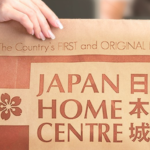
The Philippine Department of Migrant Employees (DMW) announced on February 9 that more than 80 Japanese firms are eager to engage more Filipino workers due to their “great work ethic and nice temperament.”
As part of President Ferdinand Marcos Jr.’s “formal working visit” to Japan, which began on Wednesday, February 8, Migrant Workers Secretary Susan Ople met with Japanese employers and Filipino workers in Japan.
“The widespread consensus among Japanese businesses was that Filipino personnel enlivened their workplaces and were incredibly dependable and trainable,” Ople stated.
A “Japan desk” will be established in the Office of the Secretary to expedite the needs of both Japanese employers and OFWs with Japan as their host nation, according to Ople.
The Migrant Workers Office (previously known as the Philippine Overseas Labor Office) convened a consultative meeting in Osaka, led by labor attaché Elizabeth Estrada.
The office also had a discourse with overseas Filipino workers (OFWs) residing in Japan under the Technical Internship Training Program (TITP) and the Special Skilled Worker (SSW) programs following the meeting with businesses. Ople attended both meetings.
According to the DMW, the TITP intends to accept international employees “to gain industrial and vocational skills in Japan to contribute to the betterment of their occupational lives when they return to their home countries.”
Keep Reading
Meanwhile, the SSW authorizes the Japanese government to recruit foreign employees to fill employment quotas in 14 industrial fields.
The DMW added that Filipino workers assured Ople that “they are being treated well.” According to reports, they also stated that they would continue working in Japan if given the opportunity by their companies and the Japanese government.
“Mababait po ang aming employers. Minsan, sila pa nagdadala ng pagkain para sa amin,” the DMW cited an employee of SuperCourt as saying. Our employers are charitable. Occasionally, they will even bring us food.)
According to DMW data, the earnings of Japanese workers range from 130,000 yen (P54,548) for entry-level TITP trainees to 900,000 yen (P377,640) for skilled workers in specialized roles.
The migrant labor secretary stated that passing the Japanese language proficiency test is a significant obstacle for overseas Filipino workers. Under the Japan-Philippines Economic Partnership Agreement, Filipinos are permitted to participate in the six-month Preparatory Japanese Language Training.
“We will investigate these bottlenecks and roadblocks and attempt to eliminate them one by one.Japan has proven to be a trustworthy partner in international employment,” added Ople.
According to the Philippine Statistics Authority, as of 2021, around 58,400 or 3.2% of the 1.83 million OFWs in the world are in Japan.
In a January briefing at Malacaang, Ople stated that the DMW intended to send more workers abroad in 2023, noting that the Philippines sent 486,673 OFWs from July to November 2022.


























